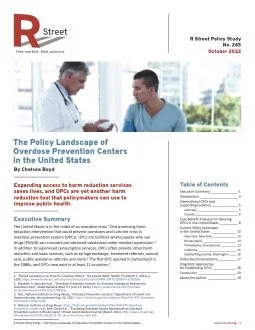By Ashmini Kerodal, Kelly Officer, Emma Dunn
During the 2019 legislative session, the legislature passed, and the Governor signed Senate Bill 577. Section 5 of the bill created a collection process for data on the prosecution of bias crimes, and requires the Criminal Justice Commission (CJC) to analyze these data to identify gaps or weaknesses in the investigation, presentation, prosecution and sanctioning of crimes motivated by bias. This study pools the county District Attorney (DA) data submitted per SB 577 and ORS 137.676, with data from the Oregon State Police (OSP) and Oregon Judicial Department (OJD) to conduct a pre-post evaluation of SB 577 on bias crime prosecutions. The pre-SB 577 group covers all defendants with a bias crime court case or arrest between January 1, 2012 and July 14, 2019, while the post-SB 577 group covers all defendants with a bias crime court case or arrest between July 15, 2019 and December 31, 2022.1 Key Findings One thousand and nine bias crime cases were identified for the 11-year study period. This number excludes cases deemed unfounded by law enforcement (LE)2 and thus not referred to the deputy district attorney (DDA) for review for criminal charges, but includes fingerprintable arrests that were no filed, i.e., bias crime arrests for which no charges were filed by the prosecutor. A case with at least one conviction charge – guilty plea, jury or bench conviction, or no contest plea – was classified as a conviction, which was further divided into bias and non-bias convictions. Sentences and probation conditions were compared for bias conviction and non-bias conviction in the pre- and post-SB 577 periods to determine if conviction charge influenced sentence lengths and probation conditions, and thereafter compared for the pre-post periods to determine the effect of SB 577 on bias crime prosecution. • Eighty percent of filed cases in the pre- and 78.5% in the post-SB 577 group were disposed with a conviction on either a bias or non-bias charge; convictions in the post-SB 577 group are expected to increase as open cases (14.8%) are disposed (see Figure 4). • Slightly over half of defendants sentenced to probation on any conviction charge pre-SB 577 had at least one complex need – identified via post-conviction court mandated substance abuse, mental health or anger management treatment, or houseless status – which increased to 6 in 10 post-SB 577 (see Table 14). • There were no differences in sentencing for bias vs non-bias convictions, aside from the higher use of jail for bias convictions: 67.4% of defendants convicted on a bias vs 44.8% convicted on a non-bias charge in the pre-SB 577 group were sentenced to any jail time, while 54.8% of defendants convicted on a bias vs 41.1% convicted on a non-bias charge in the post-SB 577 group were sentenced to any jail time (see Table 9). • In the absence of formal bias crime treatment and restorative justice (RJ) programs, Clackamas, Multnomah, Wasco and Washington counties are assigning online courses and books/essays to improve defendants’ cultural awareness; community service in culturally appropriate community based organizations (CBOs); and RJ dialogue at the community level. Due to the lack of data on deferred sentences in the OJD Odyssey database, it is possible that these strategies are more prevalent than found in this study, and some creative RJ and sensitivity trainings were not identified. • Insufficient evidence, victim issue, 3 and defendant (in)ability to aid and assist were the most frequently cited reasons bias charges were no filed/no complaint, removed from the charging instrument, or dismissed – in the rare instance when details are provided in Odyssey (see Table 7). The county DA data is crucial to close this knowledge gap and identify challenges faced by DDAs when prosecuting bias crimes. Supplemental data from the Multnomah County District Attorney’s Office (MCDA) indicate that aid and assist concerns were confirmed (22.5%) or suspected (29.8%) in over half of bias crime referrals between 2020 and 2022 (see Table A8 in the Appendix). • Some DDAs communicate justifications for no filing, filing/issuing a case as non-bias, plea bargaining, and deferred sentences to the referring officer, but this is not a consistent practice. Community members who share identity with the victim and who research shows are similarly psychologically harmed when a community member is targeted, have no right to be informed of these decisions and occurrences.4 Recommendations This report focuses on the prosecution and sanctioning of bias crimes, which is a necessary first step to formulate research design(s) 5 to identify gaps in the investigation and presentation of bias crimes. When bias convictions, global plea agreements, and non-bias convictions’ probation conditions are considered, it shows that the criminal justice system contains more accountability than is apparent when one queries a single criminal justice system data point. While accountability is a good start, CJC recommends: • Continuation of the current probation practice of utilizing a 4th generation risk assessment instrument with integrated case management (e.g., LS/CMI), mandating programming recommended by the assessment, and treating housing insecurity to reduce reoffending. • The DA, victim advocates at the DA office, or victim advocates at LEAs typically attempt to inform victims of case outcomes, but communication may be stymied due to justice system capacity, language barriers, time constraints, and other barriers. To improve future bias crime reporting and procedural justice, victims should be informed of which charges were filed, justifications for no filed decisions, their rights to participate in plea bargaining negotiations, case outcomes including probation conditions, and other efforts to hold the defendant accountable. • Additional, rigorous research that utilizes administrative criminal justice, victim services, prosecutors, law enforcement, and community perspectives is required to determine the extent of bias crime and non-criminal bias incidents, barriers to reporting, and resources service providers and the justice system require to ensure defendant accountability and meet the needs of victims and affected communities. Academics, policy researchers and graduate students can help fill these knowledge gaps with qualitative and mixed-methods studies. Interested researchers should contact the CJC.
Salem, OR: Oregon Criminal Justice Commission, 2024. 54p.





















